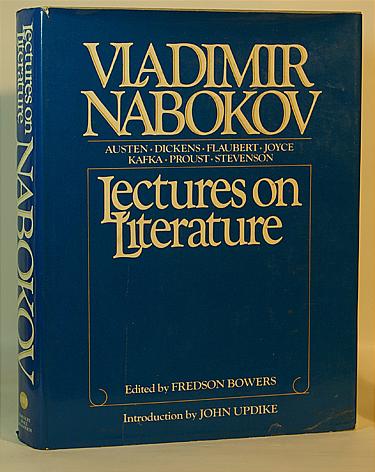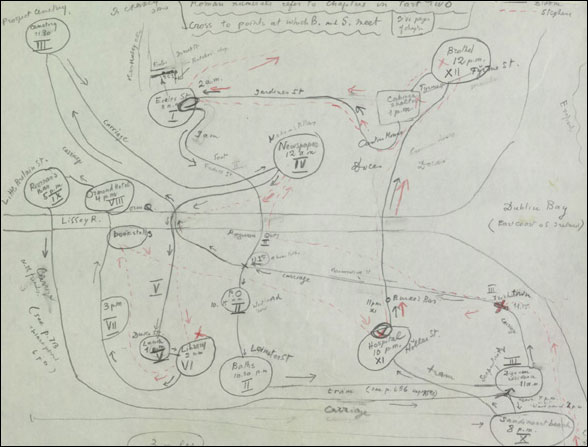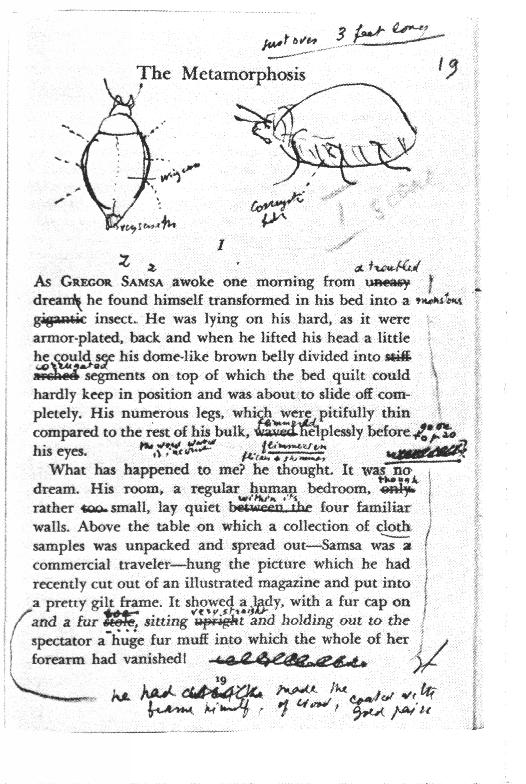I should credit my editor at The Soho News, Tracy Young, for the title of this review, which ran in their November 26, 1980 issue. For my younger readers, and even for some of my older ones, it might be helpful to add that the “snake oil salesman” alluded to in my final sentence is (or, rather, was) Ronald Reagan. — J.R.
Lectures on Literature
By Vladimir Nabokov
Harcourt Brace Jovanovich, $19.95
“Let us not kid ourselves,” intones the tall athletic Russian professor to his students at Cornell. “Let us remember that literature is of no practical value whatsoever, except in the very special case of somebody’s wishing to become, of all things, a professor of literature. The girl Emma Bovary never existed; the book Madame Bovary shall exist forever and ever. A book lives longer than a girl.”
No doubt. And even at the price of four first-run movies, this long-awaited volume of aristocratic riches has got to be the publishing bargain of the year. Comfortably oversized, decked out with plentiful reproductions of the Great Man’s notes, annotated teaching copies, diagrams, and sketches, it might be the best analysis of fiction by a practitioner to have come along since The Lonely Voice, Frank O’Connor’s masterly study of the short story.
Never mind that this is only Part I, with a companion volume on Russian writers still on the way. [2009 note: a third volume in the same series on Don Quixote was also eventually published.] These Wellesley and Cornell lectures, delivered between 1941 and 1958 (until the runaway success of Lolita finally enabled Nabokov to retire from teaching) — splendidly edited by Fredson Bowers, warmly introduced by John Updike — offer as good a do-it-yourself course in 19th and 20th century European fiction as a student is likely to find, inside or outside a university.
A control freak who wrote out every lecture word for word, in advance — the same method he employed with interviews (explicated at some length in his collection Strong Opinions) — Nabokov was no less exacting in spelling out the precise details of an imaginary location or object. These included the physical layouts of Mansfield Park, Dr. Jekyll’s house, the Samsa flat in Kafka’s “The Metamorphosis,” a Proustian orchard and the “pathetic and tasteless” cap worn by Charles Bovary on his first day of school. Like the diverse routes traced through Dublin and Ulysses [see above], these descriptions — careful enough to be drawn in careful sketches — are regarded virtually as prerequisites to serious participation in a fictive space.
It’s no wonder, then, that Nabokov has so many wisecracks reserved for Freud and Freudians. (“I am interested here in bugs,” he says in his Kafka lecture, which decisively proves that Gregor is a beetle and not a cockroach, “not in humbugs.”) As a concrete recounter and recaster of dreams himself, he knew his competition when he saw it.
By the same token, he knew quite well who his competition wasn’t: “I differ from Joseph Conradically,” he asserted in one interview, and equally disassociated himself from “Faulkner’s corncobby chronicles,” “Mann’s asinine Death in Venice,” “Pasternak’s melodramatic and vilely Zhivago,” and “Finnegans Wake, that petrified superpun.”
***
Much of the time, as Updike points out, we are simply being read to — but read to by someone whose selections and commentary constitute a very personalized reading. Nabokov’s Bleak House is a Dickens quite deliberately shorn of social significance, through a series of quick, snooty exclusions that often register like an emigré crank’s major defense against the vicissitudes of troublesome history. Satire is meaningful only insofar as transcends and outlasts its objects, while “study of the sociological or political impact of literature has to be devised mainly for those who are by temperament or education immune to the aesthetic vibrancy of authentic literature.”
One suspects that Nabokov, who had the politics (or nonpolitics, depending on the church of your choice) of an upper-class snob, would have felt little kinship with the Russian Formalists. Yet the whimsical accuracy of his formal observations is often no less apt and eclectic than theirs. Charles’ cap and the Bovary house in Yonville are described in the form of a layer cake; to trace the movement of Fanny’s emotions in Mansfield Park, Jane Austen “uses a device that I call the knight’s move, a term from chess.”
No less acute are discussions of Flaubert’s uses of counterpoint, structural transitions, an “unfolding method of description” (a bit like the layer cake), the French imperfect tense, and “the word and preceded by a semicolon” — potentially difficult or elusive aspects of form or style that the Master makes easy through the tempered grace of his exposition.
***
Not all these lectures are equally inspired. (The one on Proust — limited by the fact that the accompanying class assignment was to read only the first of the novel’s seven volumes — is a distinct disappointment.) None was prepared for publication by Nabokov himself, and a certain lack of satisfying completion seems to hover over a few, including those on Dickens and Stevenson.
My own favorites are the extraordinary examinations of Madame Bovary and “The Metamorphosis,” which seem to engage the greatest number of Nabokov’s talents and emotions. Both emerge as occasions for the lecturer’s deeply felt hatred for mediocrity on all levels. In the case of the Kafka tale, the reading is built as methodically as a legal brief. “Let us first of all study every detail in this story; the general idea will come of itself later when we have all the data we need.”
By the time Nabokov arrives at his critical epiphany, the preparatory work makes it shine with absolute conviction: “Here is a point to be observed with care and love. Gregor is a human being in an insect’s disguise; his family are insects disguised as people.”
His patient, chapter-by-chapter appreciation of Ulysses — first in his personal pantheon of 20th century prose masterpieces (followed by “The Metamorphosis,” Bely’s Petersburg, and “the first half of Proust’s fairy tale”) — runs a close third to his empathetic treatments of Flaubert and Kafka. Here his discourse is enlivened by the most commonsensical caveats and objections.
Part 2, Chapter 4, of Ulysses, set in newspaper offices, “seems to me to be poorly balanced, and Stephen’s contribution to it is not especially witty. You may peruse it with a skimming eye.” And the mixing and intertwining of “the theme of sex” and “the theme of the latrine” in Ulysses — which, in my own college days, once made Ted Weiss refer to readers of that book as “conno-sewers” — is criticized not for its frankness but for its lack of verisimilitude, assuming that Leopold Bloom “is supposed to be a rather ordinary citizen”.
If there’s a more reasonable way of dealing with the literal overflow of Joyce, I don’t know what it is. In fact, if one were trying to define what a cultivated sense of civilization consists of — a utopian task, perhaps, in a country poised on the brink of investing its future in a snake oil salesman — one could conceivably do worse than cite such a distinction.
— The Soho News, November 26, 1980




